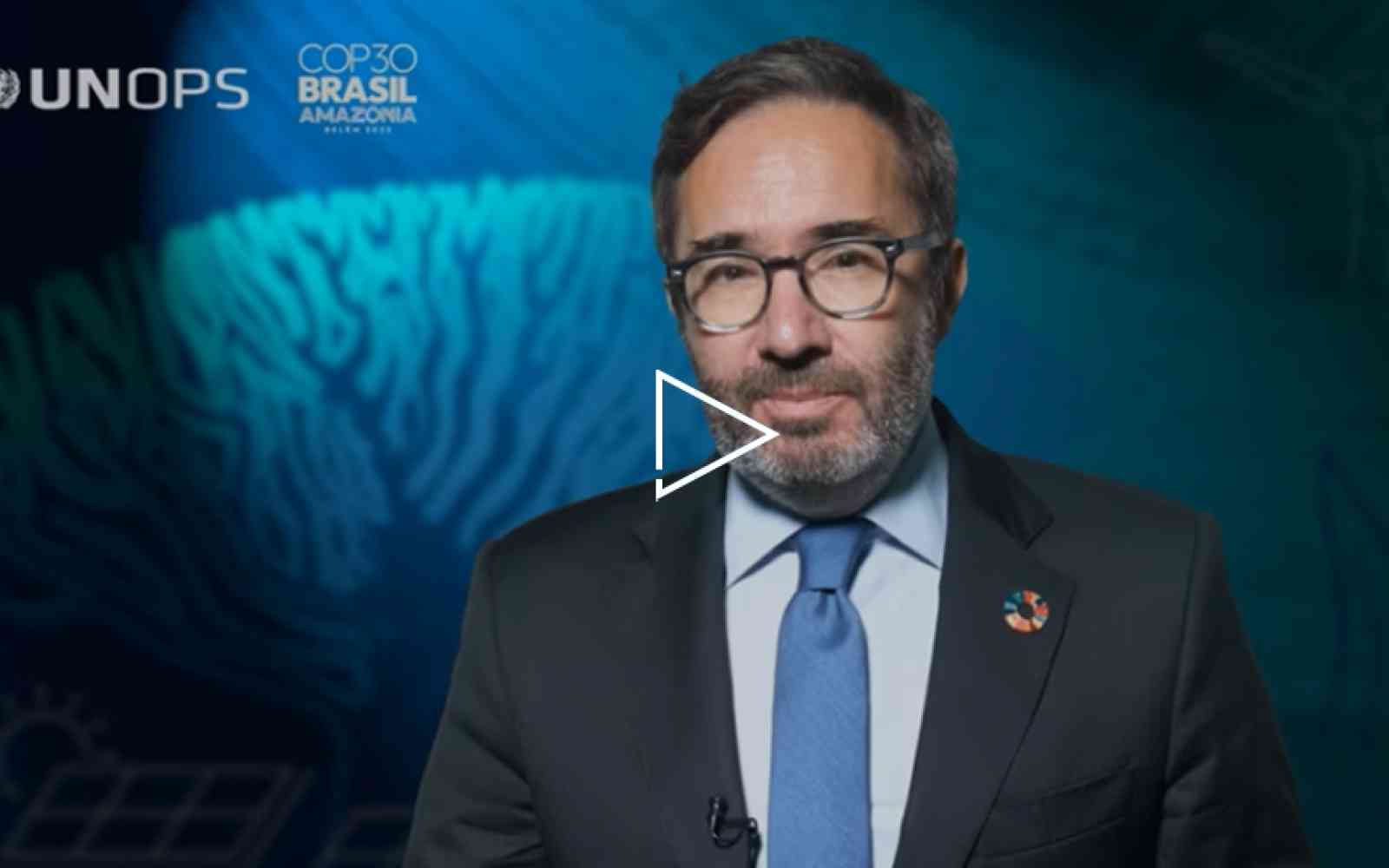The United Nations Office for Project Services (UNOPS)
Mobilizing finance for ocean actions in support of SDG14
Statement by Jorge Moreira da Silva, UN Under-Secretary-General and UNOPS Executive Director, at Ocean Action Panel 3, 'Mobilizing finance for ocean actions in support of Sustainable Development Goal 14, UN Ocean Conference, 10 June 2025.
[Check against delivery]
Unfortunately, ocean health is declining and the sustainable ocean finance gap is widening.
Ocean-related ODA accounts for roughly 1 per cent of global ODA. And even that is concentrated in few countries and not entirely sustainable. SDG14 remains the least funded of all SDGs.
We need $175 billion yearly and between 2015 and 2019, in total, just $10 billion was invested. So, we need more or less 100 times more investment on the ocean. But this is just 7 per cent of all the environmentally harmful subsidies.
How can we reverse these trends?
Definitely, ODA for the sustainable ocean economy must increase. But we must also answer the question: how can we move beyond reliance on ODA - which as we know is simply nowhere near enough to achieve global development goals. How can we realistically use public finance to catalyze innovative approaches (namely, blended finance, blue bonds, debt for nature swaps, impact investing)?
We already know some of the roadblocks. Fragmented approaches are one key part of the problem.
A fragmented ocean governance landscape.
A fragmented ocean funding landscape - which lacks coordination.
And the huge sums spent on environmentally harmful subsidies (which come to over 2.5 per cent of global GDP)
Many countries simply don’t have the strong enabling environments required to attract funds.
There are data gaps hindering decision-making and investment attraction.
And there is a lack of investable projects.
We have seen this through and through in our work to support countries towards sustainable development at UNOPS.
Both on policy and finance - we have a long way to go to scale up the support needed to respond to needs.
We all expect this conference will give a boost on finance and on policy, through the implementation of the Kunming-Montreal biodiversity targets, the ratification of the High Seas Treaty and the adoption of a legally binding plastics treaty (later this year).
But from where I sit - as the head of UNOPS - a UN agency totally focused on implementation and operations, there is also a third key pillar for progress beyond policy and finance - implementation. What we face is also a serious implementation gap that stops sustainability and ocean agendas from translating into concrete results. The ideas, the policy and the financing is there but we are not capable to roll-them out at sufficient speed or scale.
We need to address the significant challenges that countries face in accessing and absorbing sufficient levels of ocean finance. Technical assistance and capacity building are sine qua non conditions to foster effective project implementation.
---
UNOPS is focused on practical solutions. We have particular expertise in infrastructure, procurement and project management.
Infrastructure - a key focus area for us - is central to ocean action.
Much of the global infrastructure investment needs pertain directly or indirectly to oceans. About 80 per cent of the pollution found in marine environments comes from land-based activities, and approximately 85 per cent of it is plastic.
Many of these are due to insufficient infrastructure, or unsustainable infrastructure investment choices. Mis-informed choices that cause harm now while locking in unsustainable practices for decades.
We also know that oceanic renewable energy - namely through off-shore wind - will also require new infrastructure investments on grids and storage.
Infrastructure is built to last. Any decision we take now will define our future climate - and the future health of our oceans.
We know that many countries need more capacity to focus on long-term planning to identify national needs, assess financing needs, build project portfolios and be strategic in costing the investments needed, while aligning investments with national and international development priorities.
Through a range of tools, UNOPS helps governments to improve upstream infrastructure national planning, as we have done in St Lucia or the Mato Grosso State in Brazil. How? We work with our partners to help governments at all levels to identify and address challenges in the infrastructure enabling environment, financing opportunities for infrastructure projects and the actions required to embed sustainability, resilience and inclusion into infrastructure projects.
We are also looking to scale up nature-based solutions, ecosystem-based approaches to support the resilience, restoration and conservation of coastal ecosystems. The impact of these go beyond coastal ecosystems. Our research together with UNEP and the University of Oxford shows that nature-based solutions can influence 79 per cent of all SDG targets.
Similarly, public procurement policies play an important role to drive systemic change allowing for more environmentally friendly practices.
By promoting environmentally sound purchasing and building local capacity, We help reducing marine pollution from land-based activities, and support resilient blue economies.
Catalyzing the financing required to deliver on SDG14 is an urgent, collective, imperative.
Having the financial means to focus on ocean action is a key part of the debate.
But deeply interlinked with that - is how to seriously focus on fostering capacity, to act on time and drive evidence-based investment decisions. So that together, we can translate commitments into concrete results for the communities we serve.








